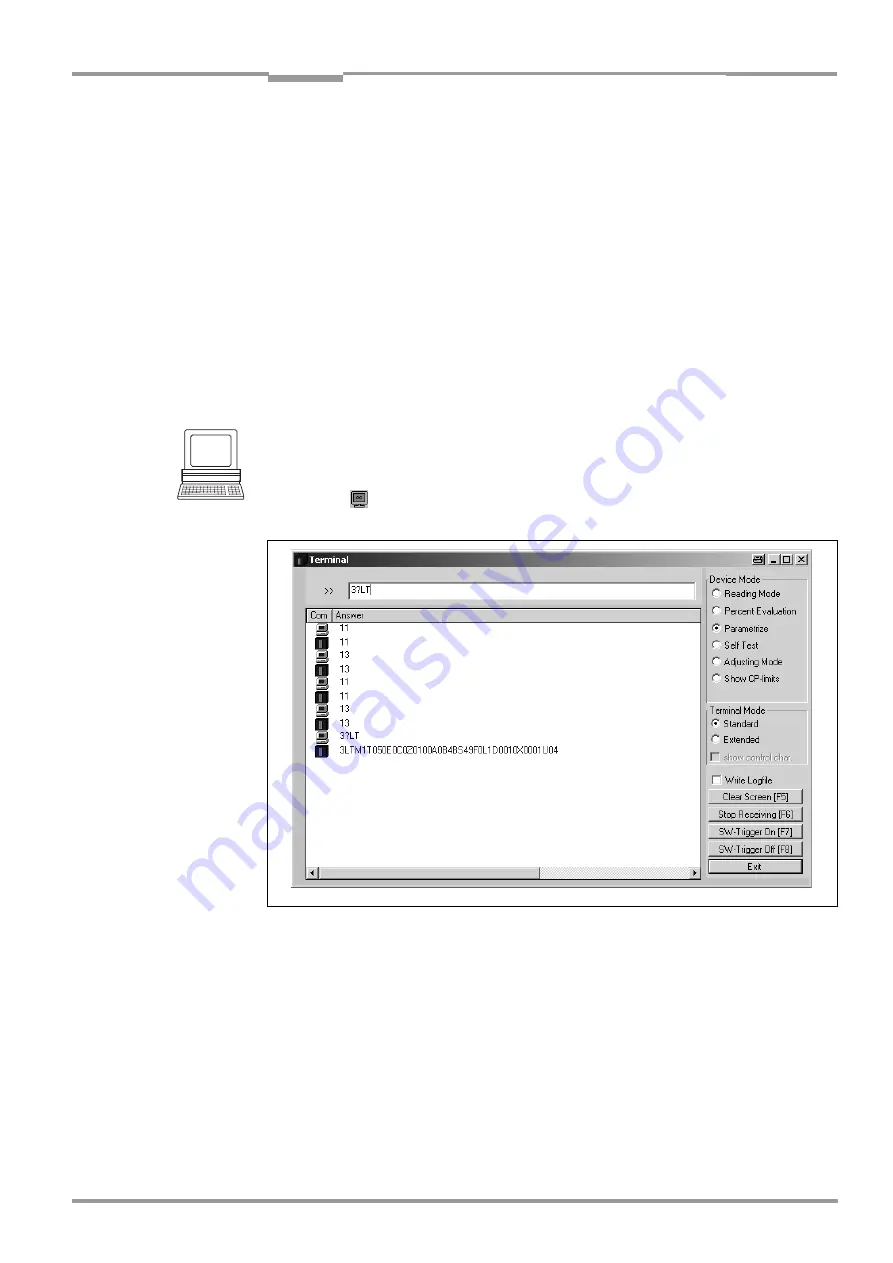
Operating Instructions
Chapter
10
CLV 480 Bar Code Scanner
8 010 080/O824/10-02-2005
©
SICK AG · Division Auto Ident · Germany · All rights reserved
10-39
Appendix
10.7
Configuring a CLV with command strings
The CLV can be parameterized and operated with command strings via the terminal inter-
face or the host interface. Parameters which are unknown to the CLV-Setup may be used
providing that the command string convention is followed. This allows, among other things,
the setting of special devices as well as the configuration of new CLV parameters (which are
unknown to "CLV-Setup" program) if your version of the CLV is older in comparison. The
"CLV-Setup" user interface is based on the command language.
The command language accesses the CLV’s command interpreter directly. Use this langua-
ge with care. Commands sent to the CLV are carried out immediately.
Parameter values changed by commands are at first only activated in the current parameter
set in the CLV’s RAM. The altered parameter values must be saved to non-volatile memory
in the EEPROM (after the changes are made) using a special command. If the values are not
saved, they will be lost when the voltage supply is cut off.
The "CLV-Setup" Terminal Emulator’s online mode makes it possible to parameterize the
CLV with command strings directly.
shows a view of the Terminal Emulator with
command lines and PC/CLV communication output windows.
1.
Click on
in the symbol bar.
The Terminal Emulator window opens. The CLV is in Reading mode.
2.
Under D
EVICE
M
ODE
, click on the P
ARAMETERIZING
option field.
The CLV aborts reading mode. The "Device Ready" LED extinguishes.
CLV-Setup switches the CLV into the parameterize mode with a command.
All commands in parameterize mode begin with "3".
3.
Enter the desired command in command line
1
, and press the [Return] key.
The command is sent to the CLV.
The CLV answers with an echo if the command was syntactically correct (in most cases).
Example:
The command "3?LT" causes the CLV to display the parameter values of the reading
trigger in coded form in output window
2
.
Fig. 10-28: CLV-Setup: entering commands in the Terminal Emulator
!
"






























